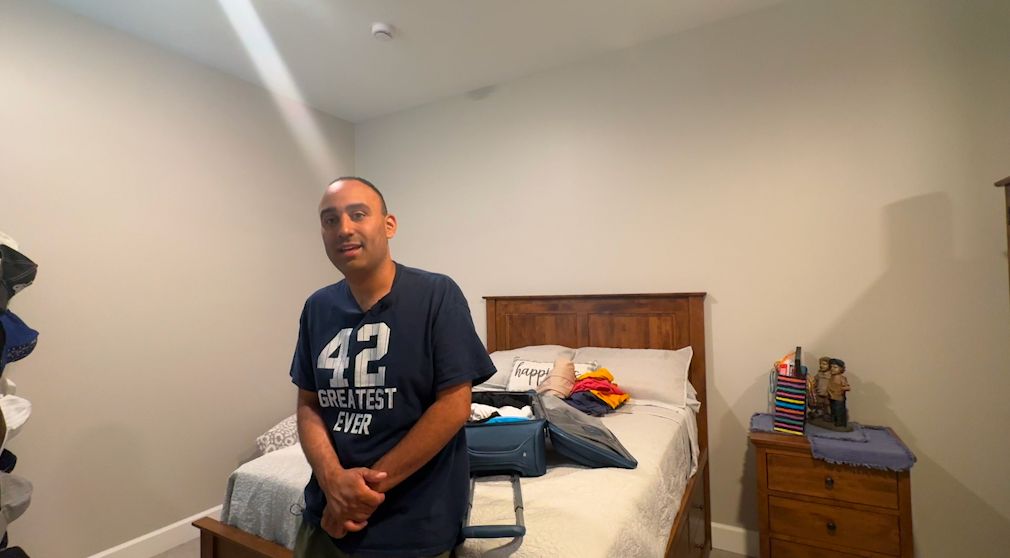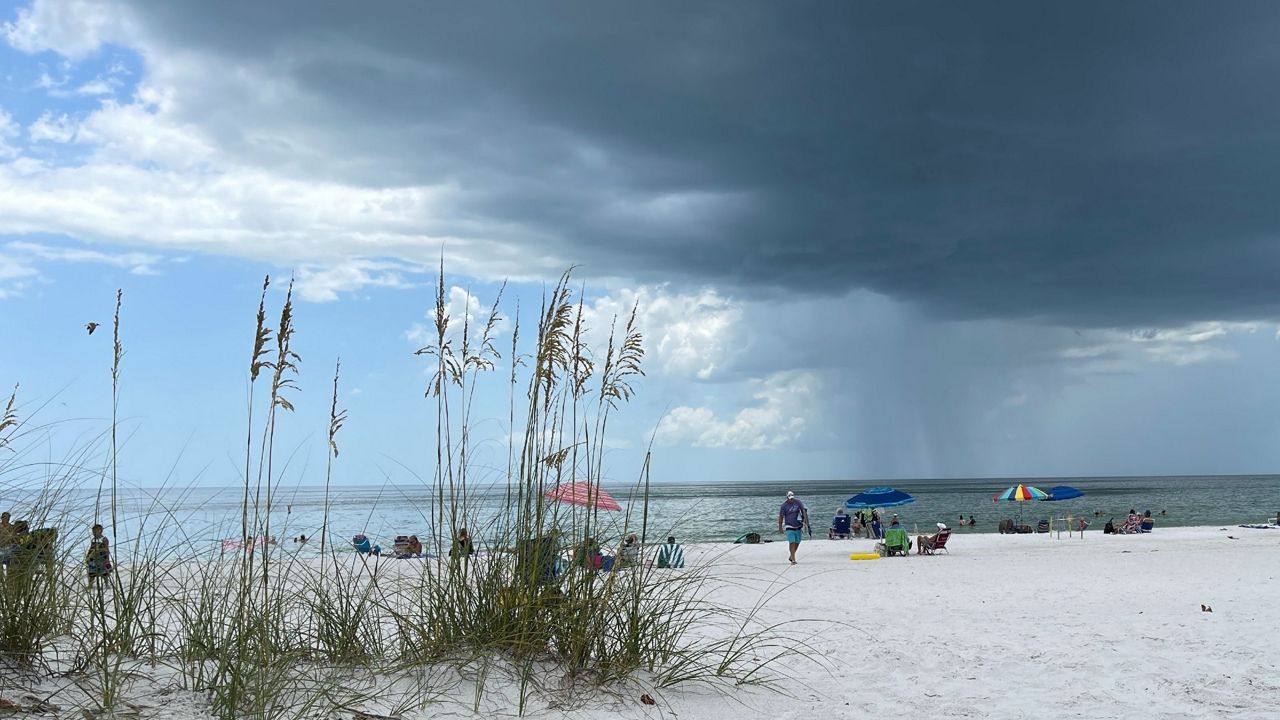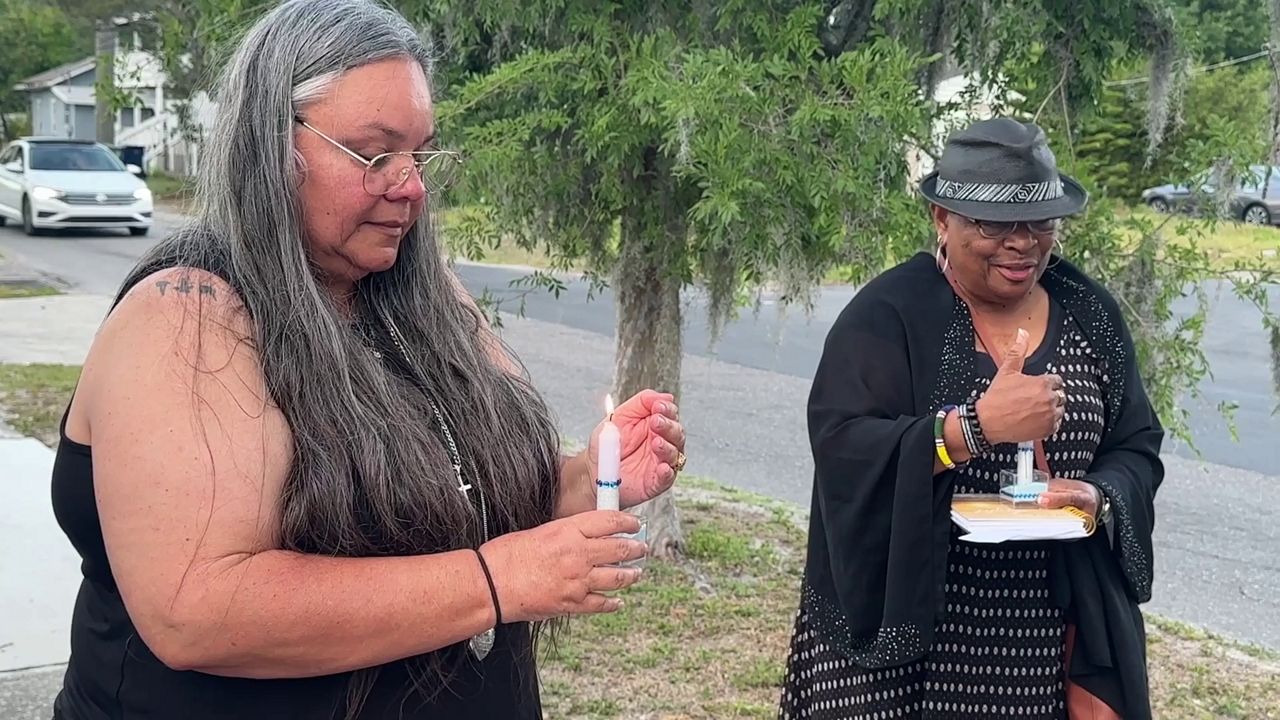ST. PETE BEACH, Fla. — It has been exactly six months since Hurricane Helene's storm surge flooded the Tampa Bay area, and St. Pete Beach Commissioner Betty Rzwenicki wants to make sure the city is better prepared for the next storm.
“We have to improve for the employees, because it's been stress on those who work in our city,” she said. “We got to get better to help people get back into their homes and their businesses back up and operating.“
For many years, Rzwenicki has been laser focused on hurricane mitigation because she lives in the low-lying Don CeSar neighborhood, which is susceptible to flooding.
The District 2 commissioner rode her bicycle around the neighborhood the day after Hurricane Helene’s storm surge flooded the island on Sept. 26 to shoot video of damaged homes for her evacuated constituents.
“That heightened emotion of people not being able to see what has happened to their house and whether they still have a home,” she said. “That was their question: ‘I want to know if I still have a home?’ So I said, ‘When I get there, I will go around and I'll start videotaping the whole neighborhood.’”
At a commission meeting last December, Rzwenicki said she wanted to make sure the city has a solid emergency plan in place.
“I was one frustrated resident and commissioner when I first came on board, was because we hadn’t reviewed our emergency plan,” she said on Dec. 3. “We need to be honest, we were emailed it the same week of the storm. We could be coming into another hurricane and not ever debriefed of a post storm.”
Rzwenicki said since that meeting, the city has established a task force which will plan on preparing for the next hurricane.
“They established a task force which is comprised of citizens, businesses, conservation groups,” she said. “Having a set plan in place will help people get to their homes sooner. We're getting close to hurricane season, so I marked that as a deadline.”
About 30,000 structures in Pinellas County were damaged by Hurricanes Helene and Milton last year. In St. Pete Beach, about 85 percent of all structures were damaged, but Rzwenicki argues everyone on the island was affected.
“Everybody had some form of damage,” she said. “Whether it was interior or exterior accessory structures.”
Many of those flood survivors have been upset by the slow pace of permits being issued by the city. Rzwenicki said part of the problem was using the state contractor, Tidal Basin, which was funneled through Pinellas County to all beach cities. Interim Community Development Director Denise Sanderson alluded to that issue during a commission meeting in January.
“I’m not sure if it was brilliant or the biggest mistake to come together under multiple jurisdictions for a single process,” she said. “There’s pros and there’s cons. Certainly, we could not have gone out and done these assessments from our own team.”
Sanderson recommended the city enter into a contract with a different vendor for next hurricane season to give the city better options moving forward, which Rzwenicki supports.
“I do think we probably should look at going under contract, much like we have with the aftermath to anticipate debris removal,” said Sanderson. “I believe we should explore and negotiate a contract in advance of a disaster for this kind of activity.”
Sanderson also recommended the city get a different Substantial Damage Estimate calculator tool, instead of the one FEMA uses.
“I think the most common phrase to describe FEMA’s SDE tool is that it’s ‘glitchy,’” she said. “And that’s an understatement. It created duplicate records quite often.”
Sanderson said she heard about an SDE calculator tool called Forerunner, which imports information from public data sources, largely eliminating key stroke error.
Rzwenicki said getting rid of the city’s one-year lookback rule helped some residents get approved to rebuild. A lookback rule takes into account permitted work done on a home in a certain time period, which counts towards overall hurricane damages.
It often pushes homeowners over FEMA’s 50 percent rule, which requires homes to be elevated or demolished and built to code. Rzwenicki said she was always opposed to having a lookback rule and pushed to eliminate it.
“No look back from the beginning before sitting on the commission until present,” she said. “Always no look back.”
The St. Pete Beach commissioner said she’s trying to help her community recover from the worst disaster in the beach town’s history.











